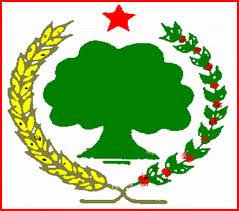Using Bloodshed to perpetuate their Rule- a Standing Policy of Ethiopia’s Rulers.
OLF Statement on the violent clash going on in southern Oromia
Since the violent formation of the Ethiopian empire three generations ago, Oromia and Oromo have been in constant conflict, instability, poverty and ignorance. The violence is applied either directly by the regime or through agents instigating conflict between neighbouring peoples or even tribes. Oromia and Oromo, who happen to be the main base of this empire, have borne the brunt of this violence.
Oromo suffered shocking extermination and mutilation, including severing of males’ limbs and females’ breasts, for resisting the imperial conquest. They were disfranchised of their land and dehumanized by reducing them to serfs and distrusting them, along with their dispossessed lands, to serve the victor militia forming the “neft’egna” (arms-bearer’s) system. Conflict was instigated with all the neighbours projecting Oromo as threats so that they would never think of resisting any more. Thus Oromo has to pay sacrifice in lives and property simply because of the possibility of being a threat in the future.
The current Tigray People’s Liberation Front (TPLF) regime, that usurped the power in 1991, is a good mirror of the successive regimes of Ethiopia in executing this policy. Under the pretext of development it evicted tens of thousands of Oromo from their ancestral land to sell to rich companies and enrich themselves. It dismissed hundreds of Oromo youth from higher education institutes and put them in jail under flimsy excuses for constant torture, to deprive Oromo of native intellectuals. Countless Oromo have disappeared; tens of thousands have fled their country.
The regime has intensified conflict-instigation between neighbouring peoples and Oromo by arming elements from the other side and presenting itself as a mediator. The case of such elements from Somali, Gumuz, Geede’o, Burji and Afar, with the neighbouring Oromo is a vivid example. They even applied the same policy between Oromo’s own tribes. The latest of such a case is the conflict that is going on between Boran and Guji Oromo tribes in the South.
This conflict, that has been instigated by agents of the regime and is going on for days, has claimed about one hundred lives and considerable property. It is obvious that the regime can stop this immediately has it not been a party to it. There is no better evidence than this for the relation of enmity between this regime and the Oromo people.
The OLF expresses its deepest grief at this conflict and holds responsible and condemns the TPLF regime for instigating and perpetuating it. The OLF calls the Oromo elders, intellectuals and youth to be aware of this enemy schemes to weaken the Oromo unity and discharge their national traditional duty by intervening to immediately stop this conflict and reconcile those involved.
Vicroty to the Oromo people!
Oromoo Liberation Front
March 31, 2014
Oromo suffered shocking extermination and mutilation, including severing of males’ limbs and females’ breasts, for resisting the imperial conquest. They were disfranchised of their land and dehumanized by reducing them to serfs and distrusting them, along with their dispossessed lands, to serve the victor militia forming the “neft’egna” (arms-bearer’s) system. Conflict was instigated with all the neighbours projecting Oromo as threats so that they would never think of resisting any more. Thus Oromo has to pay sacrifice in lives and property simply because of the possibility of being a threat in the future.
The current Tigray People’s Liberation Front (TPLF) regime, that usurped the power in 1991, is a good mirror of the successive regimes of Ethiopia in executing this policy. Under the pretext of development it evicted tens of thousands of Oromo from their ancestral land to sell to rich companies and enrich themselves. It dismissed hundreds of Oromo youth from higher education institutes and put them in jail under flimsy excuses for constant torture, to deprive Oromo of native intellectuals. Countless Oromo have disappeared; tens of thousands have fled their country.
The regime has intensified conflict-instigation between neighbouring peoples and Oromo by arming elements from the other side and presenting itself as a mediator. The case of such elements from Somali, Gumuz, Geede’o, Burji and Afar, with the neighbouring Oromo is a vivid example. They even applied the same policy between Oromo’s own tribes. The latest of such a case is the conflict that is going on between Boran and Guji Oromo tribes in the South.
This conflict, that has been instigated by agents of the regime and is going on for days, has claimed about one hundred lives and considerable property. It is obvious that the regime can stop this immediately has it not been a party to it. There is no better evidence than this for the relation of enmity between this regime and the Oromo people.
The OLF expresses its deepest grief at this conflict and holds responsible and condemns the TPLF regime for instigating and perpetuating it. The OLF calls the Oromo elders, intellectuals and youth to be aware of this enemy schemes to weaken the Oromo unity and discharge their national traditional duty by intervening to immediately stop this conflict and reconcile those involved.
Vicroty to the Oromo people!
Oromoo Liberation Front
March 31, 2014
Read More:-
--qeerroo-










 HRLHA Urgent Action
HRLHA Urgent Action